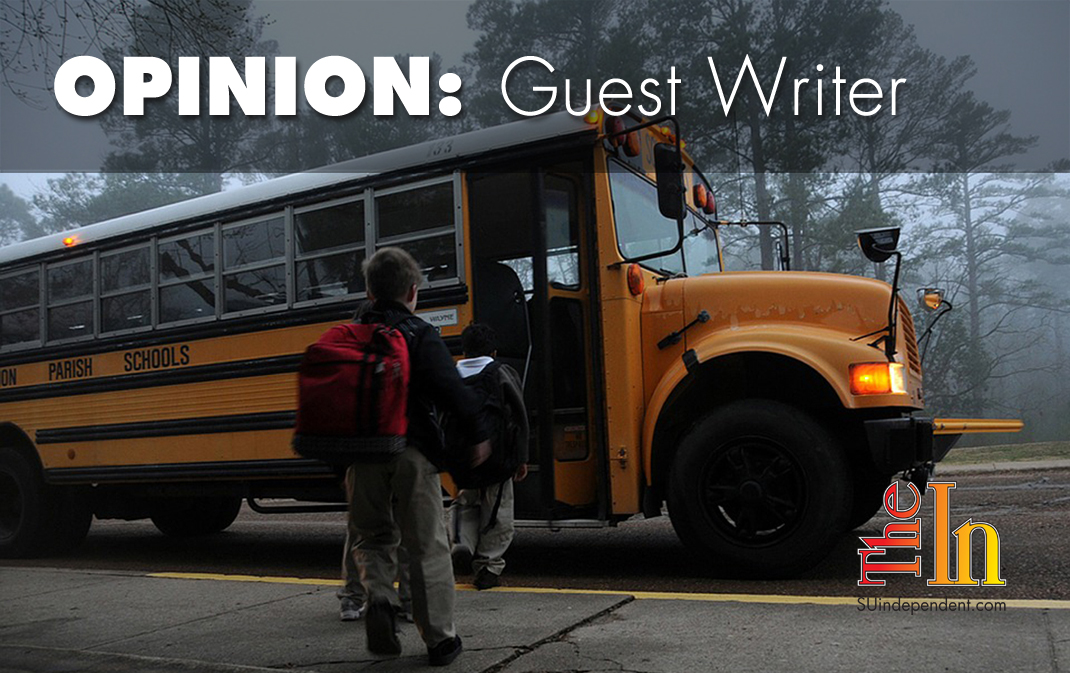 By Kati Lewis
By Kati Lewis
Only a few days after the sickening events erupted in Charlottesville, I attended Back to School Night at the charter school my teenage son attends. I met most of his teachers, chatted with them for a bit, grabbed a copy of his schedule, and did all of the other obligatory things that moms, dads, and guardians do at these events that signal, for students and teachers, the impending weightiness of the end of summer and beginning of the fall term. It was all very ordinary until I decided to visit the language arts classroom one more time before I gave up trying to talk to the teacher before the event ended. (I’m a composition, creative writing, and literature professor, so it would be near sacrilege for me not to check in with one of my disciplinary compatriots.)
It’s fitting that it was in the language arts classroom where I found myself having a very short exchange with another parent about “neutral” discussion topics for a language arts class. The teacher had just explained that he planned on engaging students in discussions on current events that would entail listening to the perspectives of people whose views and behaviors are controversial. It was clear that the teacher was referring to the protests in Charlottesville. Another parent chimed in with, “Those are hardly neutral topics.” This is when the cultural-critic side of me spoke up: “They shouldn’t be neutral topics.”
“Well, they shouldn’t be liberal or conservative [discussions],” the other parent responded. The teacher quickly added, “Oh, we’ll try to stay neutral, and we won’t get into politics here.”
I was on the verge of saying, “Racism, bigotry, hate speech, white supremacy, and violence are not liberal or conservative issues — they’re human issues that involve contextualizing the cultural, racial, religious, economic, historical, geographic, and political implications surrounding them. Parents, teachers, and students need to address them head on.” But the other parent left the room. Also, I’m not sure that my points would have been effectively offered up in that moment.
The entire exchange — all sides of it — demonstrated three very big problems with our contemporary public and academic discourse:
—We, as a society, need to neatly categorize difficult issues as having squarely “liberal” or “conservative” sides. Yes, the personal is political and the political is personal; however, dividing issues into this country’s default political categories makes them more troublesome to genuinely tackle, and this two-sided division removes the complexities in which the issues exist, thus stripping them of their contexts.
—We try to keep things neutral out of fairness and politeness. Neutrality in the service of politeness is what I call “politeness bias,” and this bias is particularly pervasive in Utah.
—We tend to quickly take positions and make statements based on incomplete information.
Additionally, keeping discussions neutral as a way to intentionally or unintentionally represent one perspective as equally valid as another side creates what “On the Media” host Brooke Gladstone would call 50/50 or fairness bias. A white-supremacist’s perspective on race and the Civil War is not equally as valid as those whose perspectives reject racial supremacy of any kind. Neutrality for the sake of fairness in this example misrepresents the cultural and political ideals American culture says it values.
I am not suggesting that neutrality is bad, nor am I suggesting that it doesn’t have a place in our political or academic discourse. Some of the deepest critical thinking my students engage in happens when they have to objectively report on an issue they feel passionately about. This requires them to stay as neutral as possible in their reporting. It’s a hard assignment that invites writing students to shut off the noise in the echo chambers that they (and the rest of us) tend to navigate towards when we want to have our worldview validated and just prove how right we are.
For my part, I wish I would have asked the teacher a question instead of making a statement without having all the information. A question would have allowed him to elaborate on how the discussions might work: “Would you mind explaining your discussions a bit more?”
I urge my writing students to begin their research on public issues with questions. Questions require seeking out the answers, following the answers to wherever they lead, and listening to them. Another lesson that I share with students centers on this fact: We’re all hypocrites. Giant ones, at that. The “hypocrites” lesson is on the agenda for next week’s class sessions. I’ve got a personal example to share with them.



